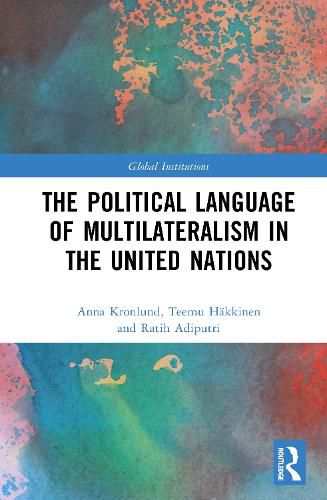Readings Newsletter
Become a Readings Member to make your shopping experience even easier.
Sign in or sign up for free!
You’re not far away from qualifying for FREE standard shipping within Australia
You’ve qualified for FREE standard shipping within Australia
The cart is loading…






This book explores the politics of multilateralism in the context of three United Nations (UN) pillars: human rights, peace and security, and development. Focussing on the debates, ideas, and practices of international cooperation that have dominated the UN agenda since the early 1990s, it shows how a conceptual understanding of multilateralism could help strengthen the international community to face uncertainty and crises.
The authors analyze the language of multilateralism as employed when the UN handles cases of transnational challenges and seeks to establish an international response and argue that conceptual politics of multilateralism taking place in the UN concerning key contemporary challenges illustrate a lack of shared understanding of multilateralism, but also broad interest to promote alternatives for multilateral cooperation as an activity. Case studies illustrate the politics of multilateralism as an analytical concept and trace the practices, debates, and related concepts such as sovereignty, legitimacy, and authority.
This volume will appeal to scholars of political theory, international organizations, global governance, and international relations as well as practitioners at think tanks and international organizations
$9.00 standard shipping within Australia
FREE standard shipping within Australia for orders over $100.00
Express & International shipping calculated at checkout
Stock availability can be subject to change without notice. We recommend calling the shop or contacting our online team to check availability of low stock items. Please see our Shopping Online page for more details.
This book explores the politics of multilateralism in the context of three United Nations (UN) pillars: human rights, peace and security, and development. Focussing on the debates, ideas, and practices of international cooperation that have dominated the UN agenda since the early 1990s, it shows how a conceptual understanding of multilateralism could help strengthen the international community to face uncertainty and crises.
The authors analyze the language of multilateralism as employed when the UN handles cases of transnational challenges and seeks to establish an international response and argue that conceptual politics of multilateralism taking place in the UN concerning key contemporary challenges illustrate a lack of shared understanding of multilateralism, but also broad interest to promote alternatives for multilateral cooperation as an activity. Case studies illustrate the politics of multilateralism as an analytical concept and trace the practices, debates, and related concepts such as sovereignty, legitimacy, and authority.
This volume will appeal to scholars of political theory, international organizations, global governance, and international relations as well as practitioners at think tanks and international organizations